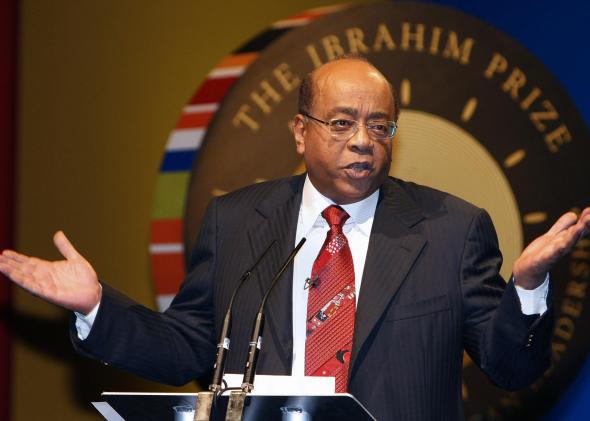Give the jury of the Ibrahim Prize for Achievement in African Leadership credit for not watering down their standards. The prize, established in 2007 by Sudanese-born telecom billionaire Mo Ibrahim to reward excellence in governance by former African leaders has, for the second year in a row and the third time in its six-year history, not been given to anyone.
It’s the world’s most generous individual prize—recipients get $5 million over 10 years and $200,000 for every year of their life after that—but the criteria are pretty narrow. To win, you have to have to be “a democratically elected former African Head of State or Government who has left office in the previous three years; have served her/his constitutionally mandated term; and have demonstrated excellence in office, helping to lift people out of poverty and paving the way for sustainable and equitable prosperity.” In other words, the award is for presidents who did a good job in office and then left when they were supposed to.
The only three leaders who won the award were Joaquim Chissano of Mozambique in 2007, Festus Mogae of Botswana in 2008, and Pedro Pires of Cape Verde in 2011.*
“Some people say we are giving a negative message (about Africa), but we are not just in the business of positive messages—we would lose our credibility,” Ibrahim said about this year’s non-award.
Looking at the elections held on the continent in 2013, it’s not hard to see why it was kind of slim pickings this year. The non-award is something of a rebuke to former Kenyan President Mwai Kibaki, who left office this year after 10 years of impressive economic growth, but was associated with several corruption scandals as well as the post-election violence of 2007.
2014 might be a somewhat more interesting year for the prize, with several mostly democratic countries holding elections. The president who succeeded Chissano in Mozambique, Armando Guebuza, will be stepping down.The president who succeeded Mogae in Botswana, Ian Khama, is up for re-election and might lose. Hifikepunye Pohamba, the outgoing president of Namibia, is another possibility.
Malawian President Joyce Banda, who took over after the previous president died in April 2012, has won international plaudits for cracking down on corruption and high-profile actions like selling the presidential plane and luxury cars. If she doesn’t win another term in the 2014 elections, she could have a good shot. South Africa is also having elections next year, though it’s hard to imagine President Jacob Zuma not winning a second term and he may be a bit too controversial for the prize anyway. (His predecessor, Thabo Mbeki, didn’t win it after leaving office in 2008.)
In any case, let’s hope Ibrahim actually has to start shelling out some cash in the next few years.
*Correction, Oct. 15, 2013: This post originally misspelled Cape Verde.
